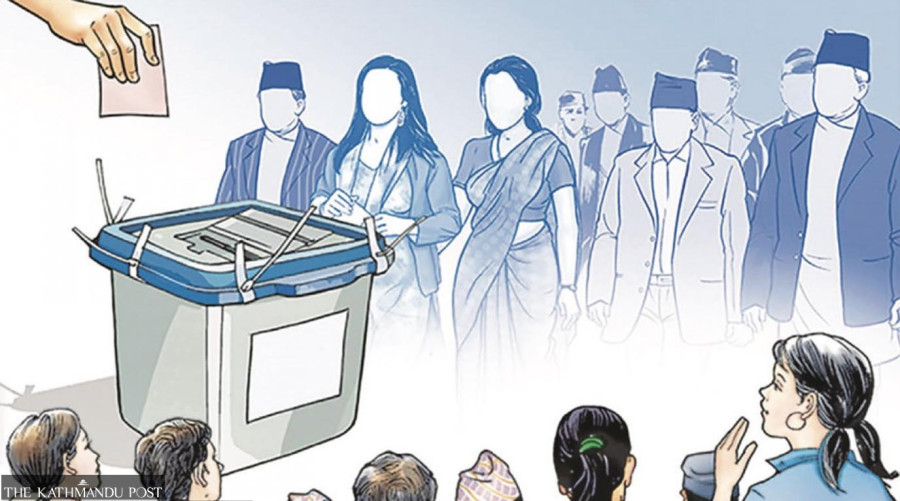Editorial
Continuity over change
The new roster of tried and tested electoral candidates does not inspire much confidence.
The run-up to the November 20 elections has gained new momentum after candidates from political parties as well as independent aspirants filed their candidacies under the first-past-the-post (FPTP) electoral system on Sunday. The parties had already submitted their closed lists of candidates under the proportional representation (PR) system last week. Neither process was encouraging. The candidate selection process should have enthused the masses, for instance, by reflecting the country’s diverse population and giving a chance to younger and more capable candidates. That is far from the case though. For example, although women make up more than half the electorate, just 9 percent of the FPTP candidates this time are women.
Separately, strong potential contenders who wanted to contest the general elections have been systematically sidelined by all the major parties. Given a chance, they could have greatly enriched the field of candidates with the breadth of their experience and expertise. Instead, most tickets went to those close to the top political leaders. Again, these are mostly yes-men who blindly follow the dickat of the party top brass. Whether in the Nepali Congress, CPN-UML or CPN (Maoist Centre), those critical of the top party leadership were denied tickets. So much for these parties’ promise to promote internal democracy!
This is a dangerous trend. Political parties are supposed to be vibrant platforms for exchange of ideas in the greater public interest. But Nepal’s established forces are turning into narrow silos that keep out all critical voices. This system might work for the benefit of select leaders for some time. But in the long run, it does a great disservice to their party as well as the country at large. Political forces that don’t heed public concern and work only for the benefit of a handful of leaders invariably wither away. Such a decline of the established political forces in turn cannot be a healthy sign for a budding democracy.
The political leaders also made a mockery of their own candidate selection process. The election candidates are supposed to be picked based on the recommendations of the party’s lower-rung chapters, which know best who is doing a good job at the grassroots level. Yet, in practice, party chiefs heed the feedback of the lower committees only if it suits them. This is not how a federal system works. The country now has a three-tier governing structure after the old unitary state failed to carry the voices of the grassroots to the decision-making level. Yet things are proving to be no different under the new federal setup.
In fact, the likes of Sher Bahadur Deuba, KP Oli and Pushpa Kamal Dahal seem intent on preserving the old privileges of the party elites to do pretty much as they please—and they expect others to blindly follow their orders.
Perhaps this is the reason, a day after the filing of FPTP nominations, there is widespread dissatisfaction with the top political leaders not just within individual parties but even outside them. The fast aging leaders don’t seem to realise that people’s aspirations for change cannot be thwarted for long.




 23.39°C Kathmandu
23.39°C Kathmandu














